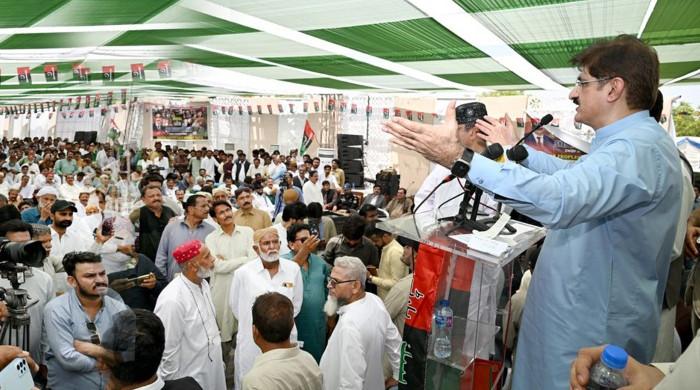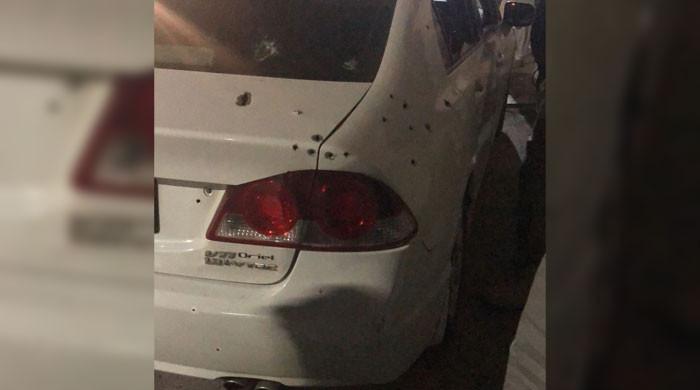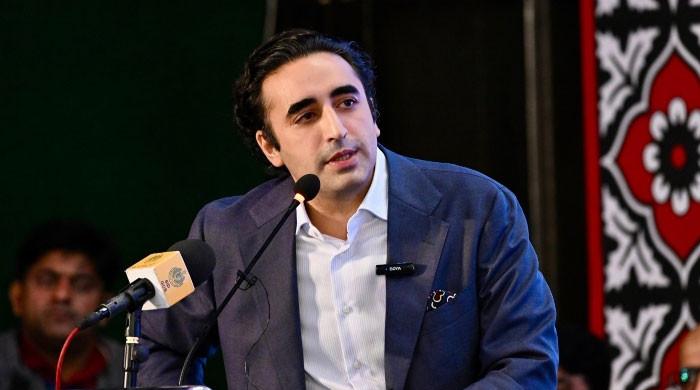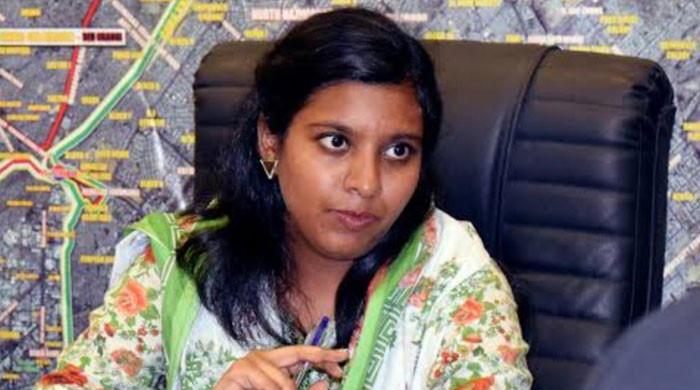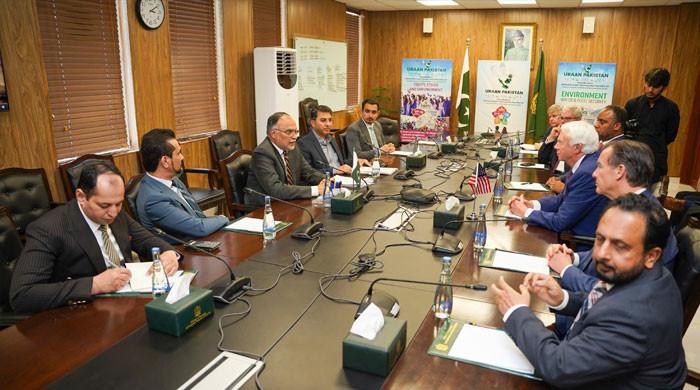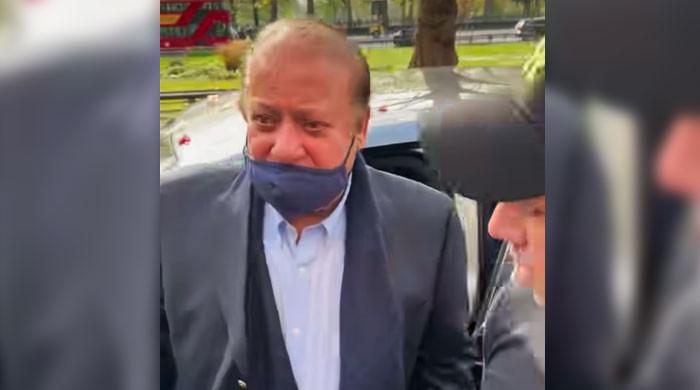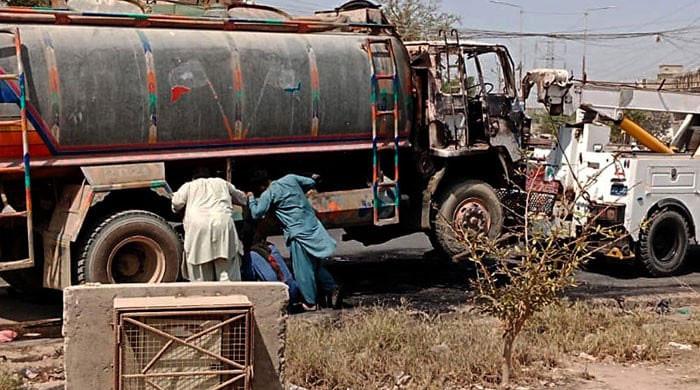Karachi heavy vehicle speed capped at 30km/hr, driver drug tests mandatory
CM Sindh issues strict orders against motorcyclists riding without helmets, triple riding, and unsafe bikes
April 08, 2025
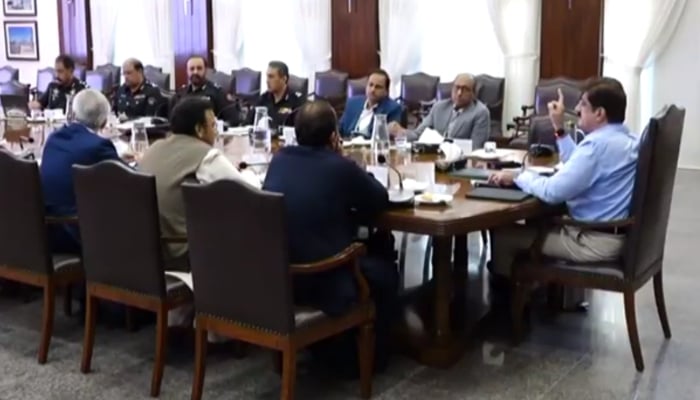
KARACHI: Sindh Chief Minister Syed Murad Ali Shah has made random drug testing mandatory for drivers of both heavy and light vehicles across the province.
In a high-level meeting held in Karachi to address the city’s growing traffic issues, the chief minister also restricted speed limit to 30 kilometres per hour for heavy transport vehicles (HTVs) operating within Karachi.
The meeting was attended by provincial ministers Saeed Ghani, Mukesh Kumar Chawla, and Ziaul Hassan Lanjar, along with Karachi Mayor Murtaza Wahab, Inspector General (IG) Police Ghulam Nabi Memon, Principal Secretary Agha Wasif, Home Secretary Iqbal Memon, Commissioner Karachi Hassan Naqvi, Additional IG Javed Alam Odho, Secretary Excise Saleem Rajput, Secretary Transport Asad Zamin, DIG Driving Licence Iqbal Dara, DIG Traffic Peer Muhammad Shah and other relevant officials.
CM Murad expressed deep concern over the rising number of road accidents, calling them intolerable and tragic, saying that mothers are losing their children.
He ordered traffic and district police to work jointly, saying: “I want road accidents to be prevented, not just reported.”
The Sindh IG briefed the meeting on the city's traffic enforcement statistics for 2024, stating that over 1.6 million challans were issued, collecting fines worth Rs1.336 billion.
Action was taken against 512,190 vehicles and 11,287 drivers were taken into custody. A total of 650 FIRs were registered, and 7,555 vehicle fitness certificates were cancelled.
The CM instructed that all HTVs, LTVs, and public service vehicles (PSVs) should be equipped with trackers and dashboard cameras. Additionally, the installation of under-run protection devices has been made mandatory for both heavy and light vehicles.
He declared that water tankers with leaking tanks or without baffle plates would no longer be allowed on the roads. Vehicles with cancelled fitness certificates will be impounded and only allowed back after clearance from the transport department, he maintained.
In a move to enhance transparency, the CM directed the introduction of a faceless e-ticketing system. Departments including Transport, Excise, Licensing Authority, Traffic Police, and National Database and Registration Authority (Nadra) will be digitally integrated to ensure seamless enforcement.
The chief minister also made international-standard training mandatory before the issuance of driving licences, and proposed a demerit point system for licence holders. He called for a crackdown on unauthorised number plates, tinted windows, illegal sirens, and flashlights.
Moreover, he issued strict orders against motorcyclists riding without helmets, triple riding, and unsafe bikes. A high-level committee has been formed to ensure the immediate implementation of these directives, which will be monitored personally by the IG Police.
The CM further announced the restructuring of the Traffic Engineering Bureau, which will now operate under the Karachi mayor’s authority to ensure better coordination.




